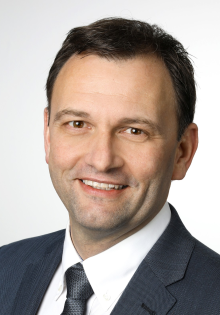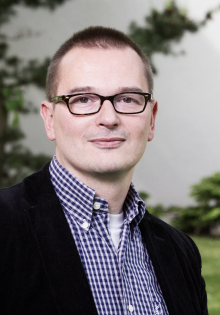NRW Ministry of Economic Affairs, Innovation, Digitalisation and Energy recommends three projects for funding
The new mobile communications standard 5G offers a wealth of opportunities for analysing large amounts of data quickly and optimising processes. Three new projects in the Ostwestfalen-Lippe (OWL) region, which have been recommended for funding in the state of North Rhine-Westphalia��s 5G.NRW call for proposals, are set to explore new fields of application for 5G in vocational training, mobility and automation. The project partners are OstWestfalenLippe GmbH, the Fraunhofer Institute for Mechatronic Systems Design (IEM) and Fraunhofer IOSB-INA (Industrial Automation branch INA of Fraunhofer IOSB), Paderborn University and Ostwestfalen-Lippe University of Applied Sciences and Arts, the districts of G��tersloh and Paderborn and 15 companies. The three projects, scheduled to start in May 2022, will be funded by the state of North Rhine-Westphalia (NRW) with up to �6.8 million.
��5G is key to optimising processes and developing new applications �C from industry and vocational training to mobility and health. Companies, research institutes and public institutions need to work together to explore the potentials and limitations of 5G in these areas. With these three projects, we��ll be carrying out important pioneering work for the future sustainability of Ostwestfalen-Lippe. Co-operating closely on this will enable us to generate a lot of synergies,�� says Wolfgang Marquardt, Authorised Officer at OstWestfalenLippe GmbH. ��The fact that three projects from OWL won the state��s call for proposals is a fantastic achievement. It also proves that we��re pioneers in science and industry for the new mobile communications standard,�� continues Marquardt. The state has recommended a total of 24 projects for funding, which are to be supported with up to �37 million.
5G campuses for vocational training
OstWestfalenLippe GmbH has joined forces with Paderborn University, the districts of G��tersloh and Paderborn, Fraunhofer IOSB-INA and Nachwuchsstiftung Maschinenbau gGmbH (foundation for young talent in mechanical engineering - NWSMB) to devise the ��OWL 5G Campuses�� project, which will be implemented in close co-operation with the companies Beckhoff, Weidm��ller, Elha Maschinenbau, Raumt?nzer, wertkreis G��tersloh and pro Wirtschaft GT. The aim is to explore the advantages and limitations of 5G technology for vocational training. Cross-professional, cross-location and cross-organisational learning scenarios will be developed from the perspective of 5G and educational research for the production of the future, with the focus on predictive maintenance, quality control and remote maintenance. The scenarios will be tested in four vocational schools in the districts of G��etersloh and Paderborn �C with both industrial-technical and commercial trainees. In addition, external learning locations in vocational schools will be networked with SmartFactoryOWL and companies as external campuses. Academic and company staff in training and further education, professionals in SMEs, semi-skilled and unskilled workers, as well as opinion leaders will be trained and made drivers of 5G in their organisations. The project will be funded with up to �1.6 million.
��In this project, we��ll be pursuing an interdisciplinary and cross-organisational research approach by combining technology know-how and educational research expertise,�� says Dr Stefan Sauer, Managing Director of Paderborn University��s Software Innovation Lab at SICP (Software Innovation Campus Paderborn), describing the basic aim of the project. ��The formula is simple: learning with 5G and learning for 5G.��
��Mastering state-of-the-art technologies is crucial for the field of vocational training. Both students and teachers therefore need to be optimally prepared for new developments and the careers of the future. It��s therefore essential to include topics such as 5G technology and the use of this technology in business contexts in vocational school teaching at an early stage and to anchor these in learning situations. With its participating departments and research areas, Paderborn University is making a valuable contribution to supporting vocational training with current challenges, training teachers, developing innovative learning situations with them and combining this with pioneering research,�� says Professor Marc Beutner from Paderborn University.
New paths for the mobility of tomorrow
In the project ��5G Simone�� (��sicher.mobil.vernetzt mit 5G�� - secure.mobile.networked with 5G), Fraunhofer IOSB-INA, Ostwestfalen-Lippe University of Applied Sciences, DB Systemtechnik GmbH, T-Systems International GmbH and biqx GmbH are researching 5G for sophisticated closed-loop control applications.
The background to this is the development and demonstration of an innovative mobility solution, which is taking place in another project: The ��MonoCab�� is a self-propelled monorail shuttle that requires gyro-stabilisation with corresponding control technology. Against the backdrop of the requirements of ever-rising vehicle speeds and high driving comfort, the control system works with real-time information from the surroundings and other vehicles. Today��s wireless networking solutions are not able to meet these requirements sufficiently in terms of latency and reliability. The project is also examining how all the requirements can be met by means of supplementing the public 5G networks with private 5G cells. The 5G networks are also to be used simultaneously for infotainment applications and user interaction (multi-service).
The findings of this project are to be leveraged for other closed-loop control applications. ��We thereby expect to achieve research findings with multiple benefits, for other industries, too,�� says Sebastian Schriegel, Group Manager for Industrial Communication at the Fraunhofer site in Lemgo. ��The combination of the ��MonoCab�� and ��5G Simone�� projects also offers us the opportunity to efficiently pool our skills and expertise.�� The project is to be funded by the state of NRW with up to �2.6 million.
5G for automation
The ��5G4Automation�� project paves the way for the development of 5G products and services for Industry 4.0. The project partners are Fraunhofer IEM, Fraunhofer IOSB-INA, Weidm��ller, WAGO, Owita, SIL, Wireless Consulting, Venjakob and Westfalen Weser Netz. The smart networking of machines and machine-driven processes in Industry 4.0 has become a key competitive factor. A basic prerequisite for the networked factory is the reliable wireless transmission of (sensor) data based on the mobile phone standard 5G. ��But SMEs in particular often lack the resources and expertise for developing 5G applications and products. This is where the 5G4Automation project comes in,�� explains Dr Christoph J��rgenhake, Project Manager and Group Manager Integrated Mechatronic Systems at Fraunhofer IEM in Paderborn.
The objective is to develop methods and solution modules that also enable SMEs to systematically use 5G technology. The existing 5G research infrastructures in Lemgo and Paderborn can use the latest 5G releases to this end, and thereby enable the implementation of specific applications with the latest technologies. ��The project is the initial impulse for a strategic 5G initiative in the region, which will be supplemented by further R&D projects, test centres and real-world laboratories in the coming years��, says Sebastian Schriegel from Fraunhofer IOSB-INA. The joint 5G4Automation project is to be funded by the state of NRW with up to �2.5 million.


